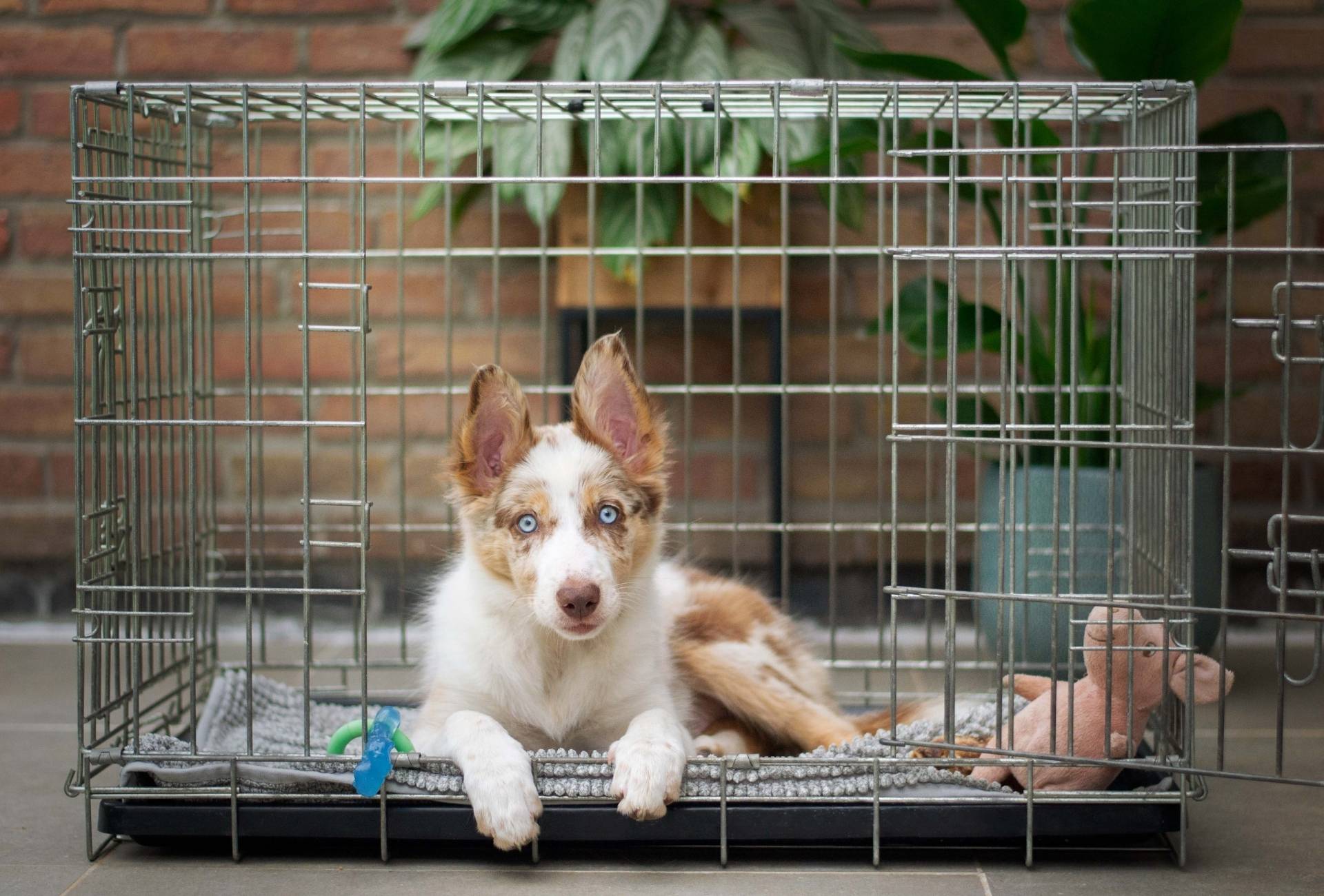Should I Lock My Puppy in his Crate At Night?
Yes, you should lock your puppy in a crate at night because an unlocked crate defeats the purpose of crate training due to your pup being able to pee and roam.

Photo by Ayla Verschueren on Unsplash
That’s assuming you want to go with crate training at all.
Of course, you can let your pup sleep in a playpen, dog bed, or even your bed but it’ll become a habit quickly and has a couple of downsides.
Why should you crate train your pup at all?
Crates are safer, speed up potty training, and make establishing a routine easier.
Now that the question of whether you wanna crate-train is out of the way, let’s dive into 6 reasons why locking the crate is essential.
If you don’t lock your puppy’s crate at night, they will be able to roam freely, pee on the floor, get into trouble, and disturb your and their own sleeping schedule.
Not to mention the fact that they’d lack a clear routine to help with overall training and obedience.
Personally, it wouldn’t have been imaginable to not close my dog’s crate door at night.
My Rottie pup would’ve slipped right out of the crate once I turned my back to her.
Naturally, not every puppy is a huge fan of the crate.
That’s why crate training is so important.
Unfortunately, the window for crate training is pretty small since you’ll need it the first night.
Don’t stuff your pup into the crate and smash the door once the lights are out.
Instead, introduce the crate positively right after coming home.
Let them explore around the open crate, reward them.
Rinse and repeat until you’re able to gently close the door for a second, open it back up, and reward.
This way, your dog will associate the crate with something positive.
You see, a locked crate should be a safe space for your dog and will help them to properly calm down at night.
Should I leave the crate door open during the day?
Leaving the crate door open when you aren’t actively training your dog is a very good idea. You want show the crate in a positive light as much as possible, so that your dog won’t mind those occasions when they need to go inside.
Toss in treats and toys from time to time and leave it in the same stop so that your dog will start to view it as their personal ‘den’ over time.
How do I keep my dog quiet in his crate at night?21 Tips To Stop Puppy Barking In Crate
Properly Closing the Door While Crate Training Your Puppy
Crate training is extremely important for dogs. Primarily, owners are usually recommended to crate train to make potty training easy. Why this is true, there are also tons of other reasons you should crate train your puppy.
If you crate train properly, the crate should become your dog’s safe space. It is where they enjoy special chews and sleep peacefully in their bed. If they become stressed, they can escape the situation by going in their crate, which should preferably be somewhere quiet and out of the way.
Therefore, there really isn’t a time when you should stoop “crating” your dog. You should always make the crate available so that your canine has somewhere to go if they need to get away for a minute.
This also provides them with a safe place to sleep. Many dogs will consider the crate their bedroom, using it to sleep and enjoy some alone time.
You can usually stop closing your dog into your crate when they are around two years of age. Before then, they are usually more likely to get into trouble. It isn’t until they mature fully that they are able to behave properly when not supervised. This is especially true for larger dogs, who tend to mature later.
Larger dogs can also do more damage with their teeth, so you should protect your home from their chewing until they are completely done teething.
When trained correctly, dogs shouldn’t mind being crated. Part of the crate training process is teaching your dog to love their crate with plenty of special chews and treats. If your dog doesn’t like their crate, you probably haven’t done enough crate training.